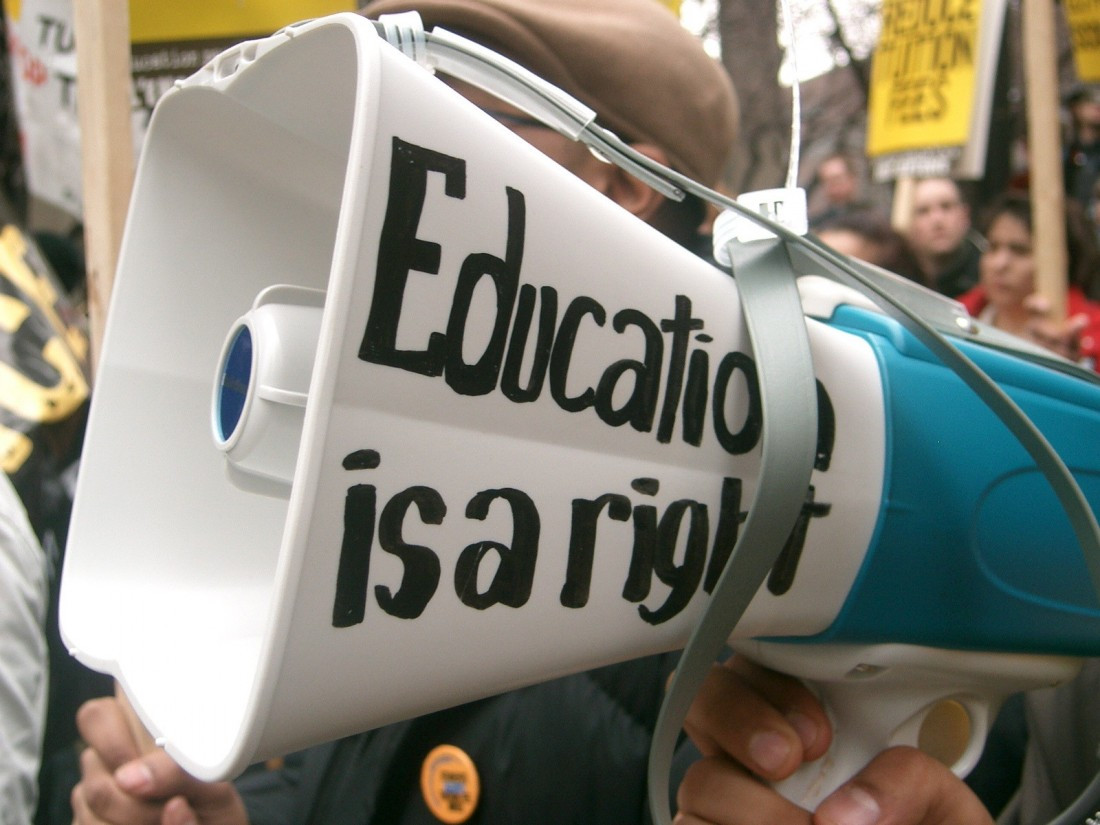All issues are student issues
Looking back on the Canadian Federation of Students national general meeting
While most students were cramming for exams, a couple hundred delegates spent November 21-24 in Gatineau for the biannual Canadian Federation of Students (CFS) national general meeting. The CFS is Canada’s largest student organization, bringing together 600,000 students from sea to sea. For trivia fans, the University of Winnipeg Students’ Association (UWSA) was a founding member local of the federation back in 1981.
Along with five other delegates from the UWSA, I had the opportunity to learn more about the student movement, share best practices with other members and connect broader struggles for social, environmental and economic justice with the work done by student activists. This last point bears special emphasis because often it is frustrating when critics of progressive student politics try to put “student issues” in a box and chastise activists for campaigning on topics that don’t quite fit inside. My experience at the NGM, however, underlined the role students can play in transforming both our campus communities and society as a whole.
Guest speakers at the NGM ran an impressive gamut, representing a variety of different organizations, causes and fields. Marc Mayrand, the Chief Electoral Officer for Elections Canada spoke about youth voter engagement. Maude Barlow, National Chairperson of the Council of Canadians warned us about the CETA trade deal with the European Union, and how it represents a Pandora’s box with profound consequences for public services. Panel discussions addressed matters including climate justice, indigenous sovereignty and rape culture.
Motions served by member locals also covered an array of subjects that casual observers might not immediately connect with student politics. Delegates passed motions expressing solidarity with the Elsipogtog Mi’kmaq, condemning LGBT rights abuses in Russia and opposing Quebec’s discriminatory Charter of Values. One could not help but feel moved as folks voted repeatedly and overwhelmingly to stand against oppression.
“But how does any of this concern students?” the naysayers ask. “Why should a students’ organization deal with anything that doesn’t directly impact post-secondary institutions?” “Stick to core concerns around funding and fees, everything else is irrelevant”.
“ There is no abstract “student” that exists independent of the diverse identities, backgrounds and experiences that shape everyone attending a college or university.
It must be stressed that the CFS puts substantial resources into exerting pressure on governments to reduce tuition and increase funding. Ironically, the same critics who want a myopic focus on these core issues are often the first to suggest that calls for lowering tuition are unrealistic and won’t make higher education more accessible. While primarily working towards improving access for students, our federation recognizes that students and the campuses they study at do not exist in a vacuum.
Students are not only students. We are also workers, women, parents, racialized, indigenous, gay and disabled by barriers. A shortage of affordable childcare spaces impacts students. Sexual violence and misogyny affects students. Minimum wage, low benefit jobs affect students. There is no abstract “student” that exists independent of the diverse identities, backgrounds and experiences that shape everyone attending a college or university. When the CFS fights date rape through the No Means No campaign or joins with labour unions in demanding action on youth unemployment, it’s not getting distracted from the “real issues”. These are real issues that have very real consequences for students.
But there’s more lurking behind the arguments of those who want to declaw the student movement. Looking at the history of student organizing offers some answers. During the 1960s, student mobilization brought France to the brink of revolution. Students played a key role in organizing against the Vietnam War. More recently, student strikes in Quebec opened up a broader conversation around the neoliberal policies of former premier Jean Charest, leading to the fall of his government.
You could hear a pin drop as the assembled delegates listened to Chris Jones from the Canadian Peace Alliance discussing the connections between the anti-war movement and student organizing. Expressing the thoughts of many a demonstrator when they see our flag flying high at anti-war protests, her words ring true for those of us who want nothing less than to change the world: “Thank God the CFS is here.”
Peyton Veitch is the Canadian Federation of Students Liaison Director on the University of Winnipeg Students' Association board. He is a third year student studying politics and history.







